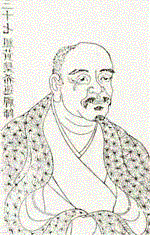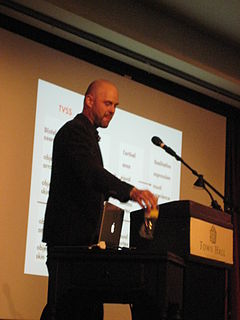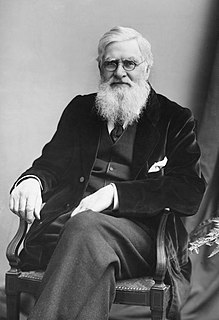A Quote by Jean Gebser
Integral reality is the world’s transparency, a perceiving of the world as truth: a mutual perceiving and imparting of the truth of the world and of man and of all that transluces both.
Related Quotes
This is what I do know: A lie, however well-intended, can't prepare you for reality or change the world... To tell the truth is to provide armament against a world too full of cruelties to be defeated with simple falsehoods... It seems to me we owe the world--more, we owe ourselves--the exchange of comfort for the chance that maybe the truth can do what people always say it can. The truth may, given the opportunity, set us free.
Perceiving how things are is a mode of exploring how things appear. How they appear is, however, an aspect of how they are. To explore appearance is thus to explore the environment, the world. To discover how things are, from how they appear, is to discover an order or pattern in their appearance. The process of perceiving, of finding out how things are, is a process of meeting the world; it is an activity of skillful exploration.
For instance, I have never believed that there is only one person for each person in the world. It doesn't make the least sense to me. However, in reality, I fell in love at 45 and I am absolutely certain that my now husband is the only man in the world for me, a truth I find both ridiculous and uplifting.
There are two distinctive peculiarities by reference to which we characterize the soul (1) local movement and (2) thinking, discriminating, and perceiving. Thinking both speculative and practical is regarded as akin to a form of perceiving; for in the one as well as the other the soul discriminates and is cognizant of something which is.
I've never felt Truth was Beauty. Never. I've always felt that people can't take too much reality. I like being in Ingmar Bergman's world. Or in Louis Armstrong's world. Or in the world of the New York Knicks. Because it's not this world. You spend your whole life searching for a way out. You just get an overdose of reality, you know, and it's a terrible thing. I'm always fighting against reality.
The belief in an external world independent of the perceiving subject is the basis of all natural science. Since, however, sense perception only gives information of this external world or of "physical reality" indirectly, we can only grasp the latter by speculative means. It follows from this that our notions of physical reality can never be final. We must always be ready to change these notions - that is to say, the axiomatic basis of physics - in order to do justice to perceived facts in the most perfect way.






































